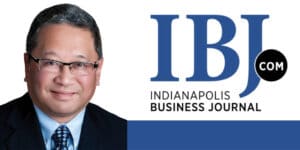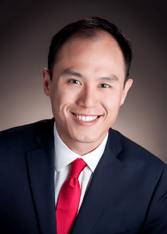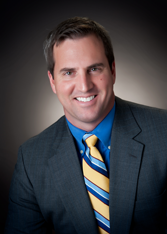
Harris, Trump both live in economic ‘fantasyland’
Mickey Kim / October 25, 2024

Close your eyes and imagine you have a credit card with no spending limit and no requirement to ever pay the balance. Further, foundational “laws” of economics like supply and demand can be repealed on a whim and without adverse consequences. Unfortunately, this is the economic fantasyland where you’ll find Vice-President Kamala Harris and former President Trump.
Candidates love to hand out “goodies” like tax reductions and tinker with the economy in ways to curry favor with voters. As an added “bonus,” these economic shenanigans often provide the desired short-term boost, with the negative side-effects coming years down the road when the bill comes due and those responsible have long departed the political stage.
This is the message in “Shall We Repeal the Laws of Economics?,” an excellent memo from Howard Marks, Co-Chair of Oaktree Capital Management.
According to Marks, “politicians can promise whatever they want regarding the economy, but they won’t be able to deliver if their promises fly in the face of economic reality because, ultimately, the laws of economics are incontrovertible. Free economies are driven by self-interested decisions made by millions of producers and consumers, employers and employees, and savers and investors.”
“Governments can pass laws designed to encourage or even compel behavior, but in general they can’t mandate economic outcomes,” he said. “There are so many moving pieces and second-order consequences that governments generally can’t engineer both prosperity and the specific economic outcomes that policymakers may seek.”
Marks points out both presidential candidates have made “something for everyone” promises that ignore economic reality. “Trump’s call for tariffs and Harris’s attack on grocery profiteering are merely two examples of proposals that would impose costs the candidate ignores (in Trump’s case) or that fail to reflect a meaningful understanding of the problem (in Harris’s case). My purpose, of course, is not to promote or dismiss either candidate, but rather to illustrate that there is no ‘free lunch’ in economics, despite candidates’ assertions to the contrary.”
Tariffs are taxes imposed by one country on goods imported from another country and can be used to:
- Raise revenue. Tariffs are a way for governments to generate money.
- Protect domestic industry. Tariffs can make imported goods more expensive than domestic goods, which can encourage consumers to “buy local.”
- Exert political leverage. Tariffs can be used as a way to exert political pressure on another country.
Former President Trump calls himself “Mr. Tariff” and argues higher tariffs on all imports (20% minimum and 60% on Chinese) will reinvigorate U.S. manufacturing, leading to increased investment, employment and economic growth. That’s a simplistic “sound bite” that has resonated with many voters.
Unfortunately, tariffs actually serve as trade barriers that raise prices and reduce available quantities of goods and services for U.S. businesses and consumers. In a recent poll conducted by the University of Chicago Booth School of Business, 95% of economists agreed “imposing tariffs results in a substantial portion of the tariffs being borne by consumers of the country that enacts the tariffs, through price increases.” Tariffs function as a national sales tax paid by U.S. consumers in the form of higher prices for imported and domestic goods (due to less price competition).
Similarly, Vice-President Harris’ simplistic sound bite is her promise to ban “price gouging,” generally defined as sellers taking advantage of market power or temporary supply/demand imbalances to raise prices to levels that otherwise wouldn’t prevail, in the grocery industry. Grocery prices rose significantly in 2021 and 2022, but Marks cited three contributing factors; 1) during the pandemic, people were forced to stay home and cook their own meals, increasing demand and depleting inventories, 2) there were numerous “supply chain” disruptions preventing the normal quantity of groceries from reaching the shelves and 3) the federal government sent taxpayers massive amounts of Covid-19 relief.
Thus, grocery price increases/inflation were caused by too few goods coupled with too much money chasing them, constituting the “classic reason for inflation.” Indeed, in the same Chicago Booth poll, 77% of economists agreed “there is little empirical evidence price gouging is causing high grocery prices.”
According to Marks, “price gouging” is typically described as being “unfair,” “excessive” and “exorbitant,” but these are subjective terms that are open to judgment and debate. Further, “the propriety of the behavior is usually in the eyes of the beholder,” so the seller’s economically rational price increase is the consumer’s gouging. This begs the question of who determines whether prices are fair, and how?
In a free market, prices are determined by the quantity producers are willing to supply and consumers are willing to purchase at various levels. Taylor Swift’s mega-blockbuster “The Eras” tour invades Indianapolis next week, with secondary market tickets offered for thousands of dollars and multiples of “face value.” “Swifties” clearly value tickets more than face. Is it wrong for folks lucky enough to snag tickets at face to resell for a profit? Conversely, would it be wrong for the artist to raise ticket prices to whatever level the market will bear?
Either way, “TSwift” would say “Shake it Off” and “Don’t Blame Me.”
The opinions expressed in these articles are those of the author as of the date the article was published. These opinions have not been updated or supplemented and may not reflect the author’s views today. The information provided in these articles are not intended to be a forecast of future events, a guarantee of future results and do not provide information reasonably sufficient upon which to base an investment decision and should not be considered a recommendation to purchase or sell any particular stock or other investment.









